2022 IEEE SERVICES - IEEE International Symposium on Women in Services Computing (WISC 2022)
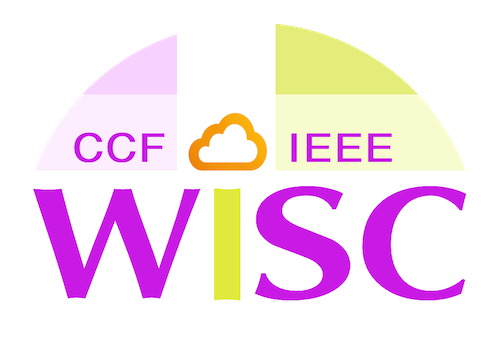 2022 IEEE International Symposium on Women in Services Computing (WISC 2022)
2022 IEEE International Symposium on Women in Services Computing (WISC 2022)
Tuesday July 12
The IEEE International Symposium on Women in Services Computing (WISC) was launched in 2020, evolving from the WISC Workshop, first held in 2017. The goal of the WISC Symposium is to provide an environment for women to exchange both technical and professional ideas and to network, in order to extend their personal associations in the field as a basis for advancement, recognition, mentoring and exchange of ideas. It is a cross-conference event at IEEE SERVICES 2022. It is sponsored jointly by IEEE SERVICES, IEEE Technical Committee on Services Computing (TCSVC), and CCF (China Computer Federation) Technical Committee on Service Computing (TCSC).
One of the highlights of the symposium is the presentation of the IEEE TCSVC Women in Services Computing Award, which will also include a talk by the winner focused on her own professional and personal journey to becoming a recognized leader in the Services Computing field.
The world has dramatically changed over the past year in terms of how we communicate, interact, work, and conduct our daily lives. However, one thing remains constant and unchanging - the need to maintain the women in services community in which we can interact, foster and nurture our careers, long term goals, and next great endeavor!
2nd IEEE WISC Scholarship Program
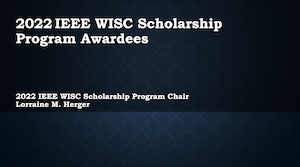
WISC Scholarship Awardees (pdf)
The IEEE International Symposium on Women in Services Computing (WISC) 2022 awarded scholarships to continue our mission to support women pursuing technical educations. Candidates must be attending an accredited engineering or computer science institution. Both graduate and undergraduate students were eligible for the scholarships, excluding past awardees.
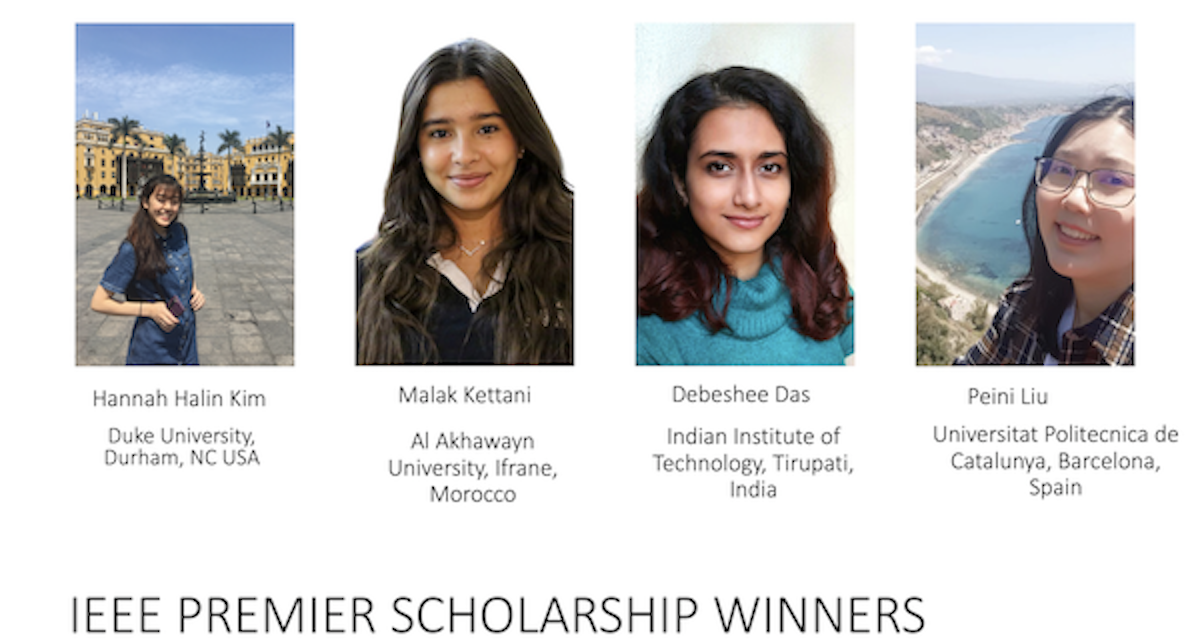
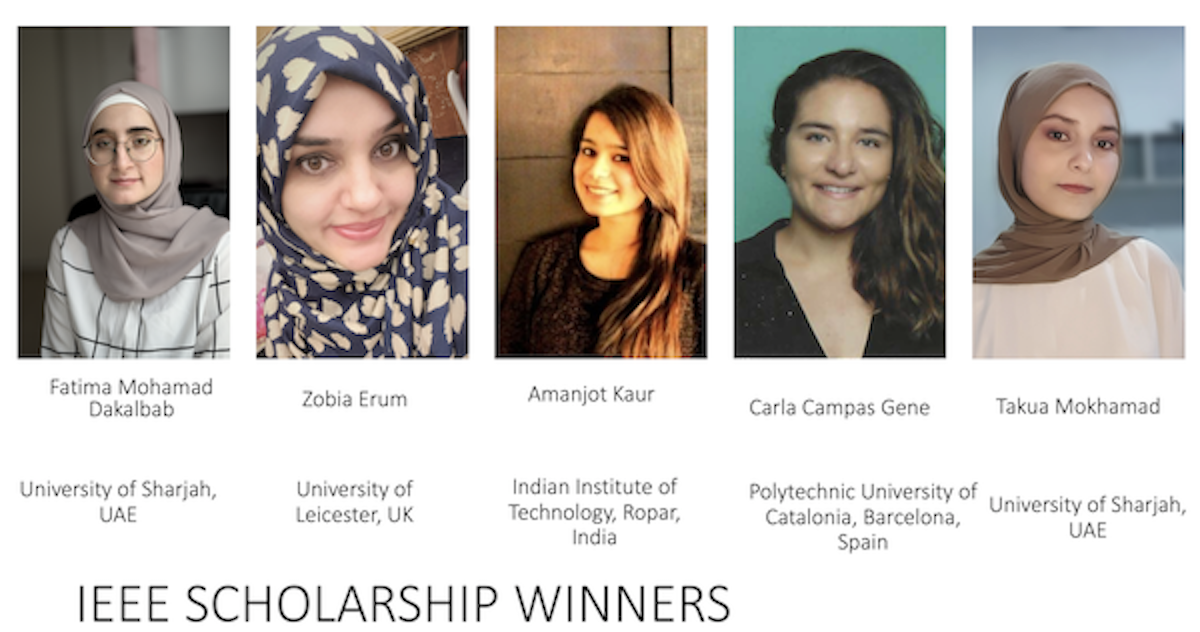
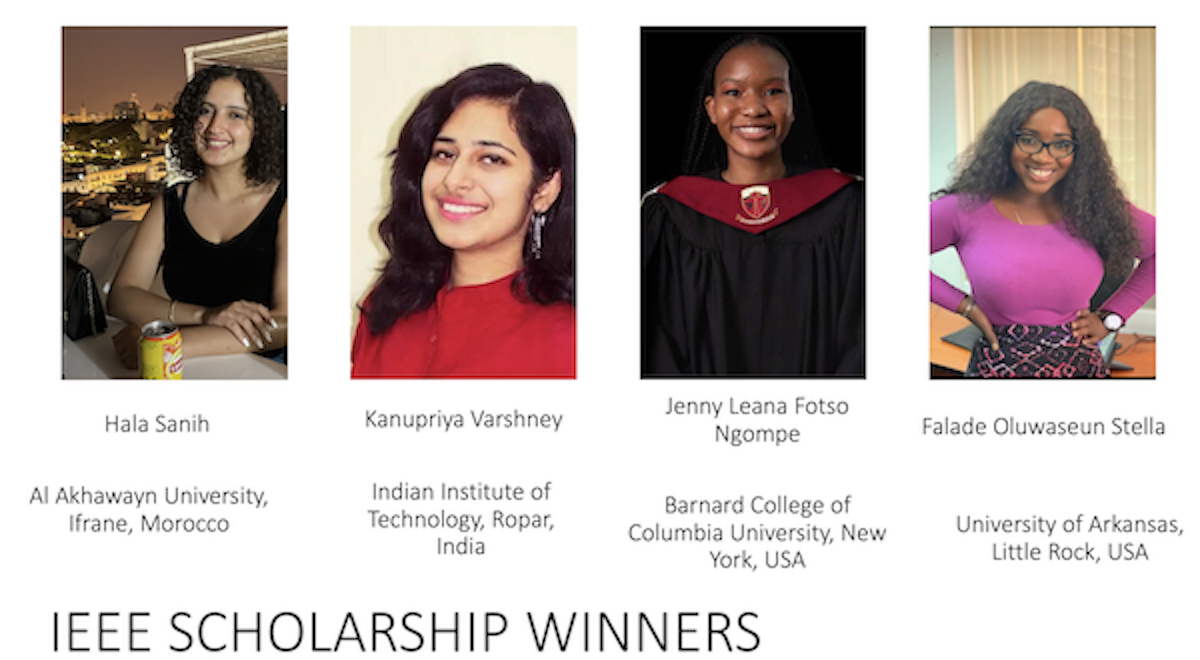
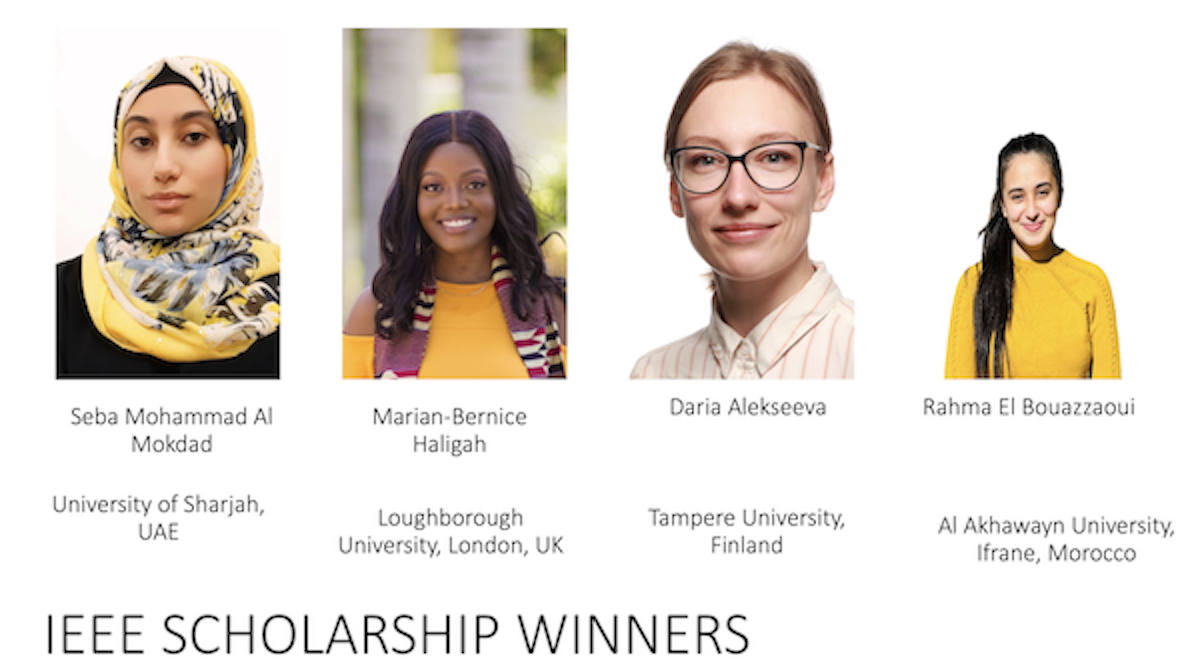
The IEEE WISC Scholarship Program started in 2021 as a cornerstone of our commitment to growing the technical community of women in services computing all over the world. The scholarship program is sponsored jointly by IEEE World Congress on Services (SERVICES), IEEE Technical Community on Services Computing (TCSVC), and CCF (China Computer Federation) Technical Committee on Service Computing (TCSC).
WISC Technical Program
WISC Session 1
Opening Session
Tuesday July 12, 17:30-18:45 CET (11:30-12:45 US Eastern)
Room: Theater Room
Session Chair: KAOUTAR EL MAGHRAOUI, PRINCIPAL RESEARCH STAFF MEMBER, IBM TJ WATSON RESEARCH CENTER
 Opening Welcome from the General Chair
Opening Welcome from the General ChairKaoutar El Maghraoui, Principal Research Staff Member, IBM TJ Watson Research Center
 Acceptance Speech of the 2022 TCSVC WISC Awardee
Acceptance Speech of the 2022 TCSVC WISC AwardeeYanmei Zhang, Central University of Finance and Economics, Beijing
 Keynote 1: Building Large-Scale Knowledge Bases with Human in the Loop
Keynote 1: Building Large-Scale Knowledge Bases with Human in the LoopYunyao Li, Head of Machine Learning, Apple Knowledge Platform, Apple Corporation
Introduction by Shubhi Asthana, Research Senior Software Engineer, IBM Almaden Research Center
The ability to build large-scale knowledge bases that capture and extend the implicit knowledge of human experts is the foundation for many AI systems. In this talk, I will introduce an ontology-driven approach for the creation, representation, and consumption of such knowledge bases. This approach relies on several well-known building blocks: natural language processing, entity resolution, data transformation and fusion. I will present several ‘human-in-the-loop’ examples which extract the domain knowledge from human experts and map it into the "right" models or algorithms. Based on real use cases in domains such as compliance, finance, and healthcare, these tools enable the building of models that can match the level of accuracy achieved by manual efforts, but at a significantly lower cost and improved scalability.
Yunyao Li is the Head of Machine Learning for the Apple Knowledge Platform. Previously she was a Distinguished Research Staff Member and Senior Research Manager at IBM Research - Almaden where she built and managed the Scalable Knowledge Intelligence department. She is particularly known for her work in scalable NLP, enterprise search, and database usability. She has built systems, developed solutions, and delivered core technologies to over 20 IBM products under brands such as Watson, InfoSphere, and Cognos. She has published over 80 articles and a book. At IBM, Yunyao was an IBM Master Inventor, with over 50 patents filed/granted. Her technical contributions have been recognized by prestigious awards within and outside of IBM. Yunyao is also an ACM Distinguished Member. She was a member of the inaugural New Voices program of the US National Academies (1 out of 18 selected nationwide) and represented US young scientists at the World Laureates Forum Young Scientists Forum in 2019 (1 of 4 selected nationwide). Yunyao obtained her Ph.D. degree in Computer Science & Engineering and dual-degrees (M.S.E in Computer Science & Engineering and M.S in Information) from the University of Michigan. She graduated from Tsinghua University, Beijing, China, with dual-degrees (B.E in Automation and B.S in Economics).
Panel: The Future of Services Computing

WISC Session 2
Tuesday July 12, 18:45-19:45 CET
Session Chair: Kaoutar El Maghraoui, Principal Research Staff Member, IBM TJ Watson Research Center
 Keynote 2: Beginning of a New Era of Computing
Keynote 2: Beginning of a New Era of Computing
Valentina Salapura, Principal Engineer, Google
Introduction by Ruchi Mahindru, Senior Technical Staff Member, AI and Knowledge Induction for IT Operations, IBM Master Inventor, IBM Research
The explosion of data and new workloads requires large amounts of compute power and advances in computing performance. With the end of the Moore’s law era, new ways of providing compute power must be found. To address the need for more compute power, a multi-level approach spanning components, systems, and software advances is required.
I will talk about new trends in computer architecture to address this need, ranging from accelerators and heterogeneous computing, to disaggregated computer systems to harness the available hardware resources. This architecture will require support from the open software ecosystem to accelerate innovation and delivery via a cloud computing platform.
Valentina Salapura is a Principal Engineer at Google, working on system architecture for cloud and edge computing. Previously, she was Senior Fellow at AMD Research working on distributed computing and supercomputing. Prior to her AMD position, Dr. Salapura worked at IBM Research as a system architect and IBM master inventor, working on cloud computing resiliency for several IBM cloud offerings, and as a computer architect for the IBM Blue Gene program from its inception. Before joining IBM at the T.J. Watson Research Center, Dr. Salapura was a faculty member with Technische Universität Wien in Vienna, Austria, where she conducted pioneering research into application acceleration and invented the first application accelerators for fuzzy logic and artificial neural networks. Dr. Salapura is the author of over 80 papers and several book chapters on processor and network architecture. She holds over 400 patents in this area. She is a Fellow of the IEEE and a recipient of the 2006 ACM Gordon Bell Prize for Special Achievements for the Blue Gene/L supercomputer and quantum chromodynamics.
 Keynote 3: AI Computing Services for AI: Unleashing the Power of Deep Learning for Robotics Trends and Challenges
Keynote 3: AI Computing Services for AI: Unleashing the Power of Deep Learning for Robotics Trends and Challenges
Bouchra Bouqata, Senior Applied Scientist and Program Manager, Amazon Robotics Research
Introduction by Lorraine Herger, Director of Infrastructure and CIO of IBM Research
The recent rapid progress of deep learning algorithms in generating realistic images, especially in Generative Adversarial Networks (GAN) and Variational Auto-Encoders (VAE), has helped advance new applications. Examples of such applications range from generating and manipulating new synthetic data for self-driving cars, to building/urban architectures, to interior design, and gaming. Furthermore, several applications have benefited from deep learning generative advancement, such as robotic manipulations in structured and unstructured environments, virtual fashion clothes ‘try-on’, and item identification ‘on the go’. Real-life testing of robotic systems is expensive and slow. A fundamental challenge of applying deep supervised learning and deep reinforcement learning to several applications, such as robotics and self-driving cars, is data availability and the difficulty of collecting real-world data. In fact, state-of-the-art deep learning algorithms are data-hungry and need millions to tens of millions of labeled examples with variety for each application domain. However, obtaining labeled real-world data for robotics or self-driving cars, is challenging due to the fact that 3-dimensional data can be particularly difficult to label, and collecting this data with expensive robotic systems or autonomous vehicles can be costly and dangerous, since the underlying algorithms have to reach a certain level of accuracy to be deployed ‘in the wild’ for data collection. This talk will focus on robotics applications and the use of AI for AI and on how Deep learning algorithms such as GAN are leveraged. Additionally, we will discuss the Machine learning algorithms lifecycle at scale and how computing services enable it.
Bouchra Bouqata is a Senior Machine Learning and AI Scientist and Program Manager at Amazon Robotics Research. At Amazon Robotics, she leads programs in the area of automated-intelligent systems based on Computer Vision and Machine Learning solutions with an emphasis on solving business problems for the Amazon automated robotics-enabled Fulfillment Network. These business problems range from automatically identifying packages to identifying damages from a robotic arm. She is also working in the area of ‘AI for AI’ research for data generation and augmentation using Generative Adversarial Deep Learning networks. Prior to her position at Amazon, Dr. Bouqata was a Senior Analytics Product Manager at GE Renewable Energy and Senior Scientist in the Machine Learning lab at GE Global Research. She led several programs in the area of large-scale automated-intelligent Machine Learning and AI systems solutions focused in the areas of Prognostics and Health Management, Monitoring and Diagnostics of complex assets (such as Wind turbines, Jet Engines, Gas Turbines) and led several government agency (DARPA and IARPA) programs in AI and Cognitive AI agents. Dr. Bouqata received her Ph.D. in Machine Learning and Artificial Intelligence from Rensselaer Polytechnic Institute. She received several fellowships and awards including MRE Academy Morocco, BEYA and YCWA REACH awards for outstanding achievements and Amazon and GE’s inclusiveness award for outstanding leadership and Research. Dr. Bouqata has co-authored several conference and journal publications and holds multiple patents in the areas of Machine Learning, Automation, Robotics, Asset Prognostics and Health Management and Asset Monitoring and Diagnostics. She has organized successful panels and workshops and served as chair and invited speaker in different technical conferences such as AMLC, NREL, ICCBR, NIPS, Big Data, Wind O&M, GHC and NYCWiC. Dr. Bouqata is an active member of IEEE, AAAI, ACM and SWE. As a woman in technology, Dr. Bouqata is passionate about attracting, promoting and retaining women in Computing. She is part of the leadership committee of the Grace Hopper Conference for Women in Computing (GHC), Amazon Women Engineers (AWE), Amazon Women in Science (AWiS), and Arab Women in Computing (ArabWiC). Bouchra is actively mentoring other women in technology to navigate and advance their careers and achieve work/life balance.
 WISC Scholarship Announcements & Closing Remarks
WISC Scholarship Announcements & Closing Remarks
WISC Scholarships Chair: Lorraine Herger, Director of Infrastructure and CIO of IBM Research
WISC Organizers
General Chair
Kaoutar El Maghraoui, Principal Research Staff Member, IBM T.J. Watson Research Center
Program Chairs
Shubhi Asthana, Senior Research Software Engineer, IBM Almaden Research Center
Àngela Nebot, Associate Professor, Universitat Politècnica de Catalunya - BarcelonaTech (UPC)
Ruchi Mahindru, Senior Technical Staff Member at IBM Research and Master Inventor, IBM Research
Scholarships Chair
Lorraine Herger, IBM Retiree and Former Director of AI Infrastructure, IBM T.J. Watson Research Center
Publicity Chair
Manar Abu Talib, Professor and Chair of Research Outreach Department at University of Sharjah
Committee Members
Houda Chakiri, Assistant Professor of Computer Science, Al Akhawayn University Ifrane
Chen Wang, Research Staff Member, Container Cloud Platform, IBM Research
Bhavani Thuraisingham, Distinguished Professor of Computer Science and the Executive Director of the Cyber Security Research and Education Institute, University of Texas at Dallas
Bouchra Bouqata, Senior Applied Scientist and Program Manager, Amazon Robotics Research
Mercy Bodarky, Program Manager, Research IT Security & Compliance, IBM Research
Misbah Mubarak, Senior Software Engineer at Amazon Web Services (AWS)
Yousra Aafer, Assistant Professor at University of Waterloo
Honorary General Chairs
Carl K. Chang, Iowa State University
Rong N. Chang, IBM Research, TJ Watson Research Center
Jianwei Yin, Zhejiang University
Ernesto Damiani, University of Milan
Shangguang Wang, Beijing University of Posts & Telecommunications